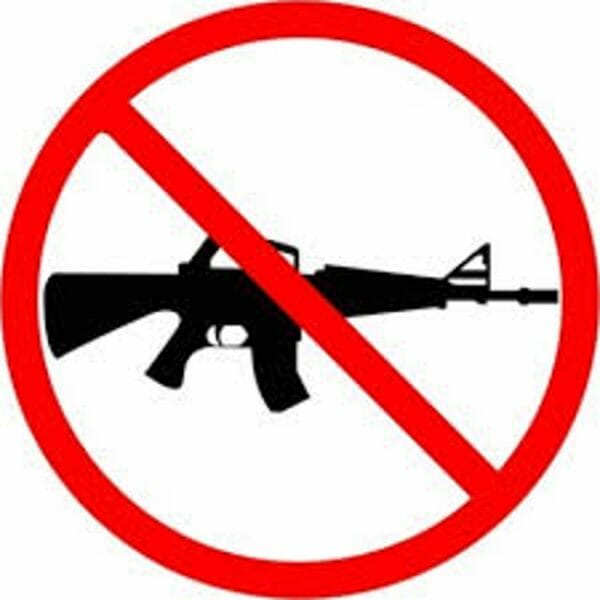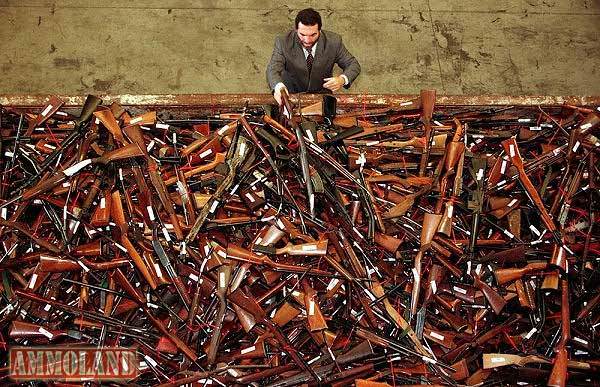
Fayetteville, AR – -(Ammoland.com)- Emily Dickinson is admired by many in my field as a poet who could find meaning in the most minute of observations. One of her poems that I’ve been quoting to people since my days in high school gets at the question of significance and celebrity:
I’m nobody! Who are you?
Are you nobody, too?
Then there’s a pair of us — don’t tell!
They’d banish us, you know.How dreary to be somebody!
How public, like a frog
To tell your name the livelong day
To an admiring bog!
Too many these days want to be a loud somebody, as reality television and pop music illustrate—or advocates of gun control.
And this poem comes to mind when the latter group repeats the claim that nobody wants to take our guns. They praise Australia and England; they call for bans on AR-15s; they tell us that no one needs semiautomatic firearms, but then insist that they’re not trying to take our firearms away. And they expect us to believe them.
But the truth emerges from time to time. I have a collection of bookmarks of gun control advocates—politicians and writers—who are honest enough to draw the obvious conclusion about the goals of the movement in public. A new example has appeared on Vox by Dylan Matthews, titled, “What no politician wants to admit about gun control.” The argument he makes is that anything less than sweeping confiscation won’t significantly reduce gun violence, but since we’re not going to do that, he’ll just have to wring his hands.
The writing wanders through the articles of faith of gun control advocates, engaging in a Gish Gallop in the hopes that readers will be overwhelmed. If Matthews would slow down for a moment, he would find out that the assertions he keeps making are not helpful to his cause, though—presuming he’s willing to be honest about the evidence.
He spends a long stretch of writing on Australia and surprisingly admits that murdering of groups continued—just with knives or fires—and that the 1997 laws can’t be shown to have had an effect on the homicide rate. He waffles a bit here with the usual attempt at a diversion by claiming that gun homicides declined, as if murder is acceptable as long as icky guns aren’t used. I’ll bolster his admission by pointing out that the homicide rate in Australia began a decline in the 1980s and leveled out in the 2000s, despite a spike that occurred shortly after the new gun controls were enacted. And while suicides committed with firearms have gone down, the overall rate was also decreasing from a peak in the 1960s, though there has been a rise in the number of people killing themselves over the last decade.

But as I said, Matthews gets around to the reality that when Australia punished the nation’s law-abiding gun owners for the Port Arthur massacre, trends that were already in progress continued without being affected by the new laws. He wants to find some proof that gun control does any good at all, and in that yearning, he brings up the example of Missouri’s repeal of a permit-to-purchase requirement for handguns in 2007. Did the homicide rate in that state increase in 2008? Yes. And then it went back down. And back up. Over the last twenty years, Missouri’s rate has bounced around between 5.0 and 8.8 per hundred thousand with no clear trend. Focusing on the change from one year to the next is exactly what cherry-picking means.
In a need to place blame, Matthews goes after the NRA. Of course he does. According to him, the NRA blocks bans on AR-15s by paying off politicians. If he wants to discuss campaign finance reform, let’s do it, but it’s no good complaining that one group is successful in the system as it is. And while he claims that a ban on “assault weapons” would be constitutional, remember the finding in the Heller ruling that guns in common use are protected. The AR-15 is certainly common, in part thanks to the attempts to ban it. Even The New York Times has to acknowledge that attempts to impose new restrictions drives sales.
By the end of all this, Matthews has to face the truth: “Large-scale confiscation is not going to happen.” His tactic here is to say that by advocating for confiscation, we can achieve smaller measures that in his view would do some good, yet as I’ve discussed above, he lacks convincing evidence for that claim. And while he admires Europe, he doesn’t seem to have spent much time considering the data. In England, for example, the homicide rate has been basically constant since the 1770s, even though the gun laws there didn’t get onerous until the middle of the twentieth century.
Calls for measures short of confiscation are the equivalent of a thief telling me that no, he doesn’t want to steal my car. He just wants the tires today, the radio tomorrow, a couple of doors the day after, and so forth. I’m sure I’ll be told that Matthews is just a writer, not a legislator, so his advocacy for confiscation doesn’t count. He’s just a nobody, in other words. Except that nobodies are by no means silent, and when enough of them work each other into a lather, the bog gets noisy, and laws get passed. And the less good those laws do, the better, since that allows the next round of demands to begin in short order.
It’s up to those of us who care about gun rights to make sure that Matthews and his ilk are called out for what they rarely admit to wanting—a desire to take our guns away—and to stop them from experiencing fulfillment.
About Greg Camp
Greg Camp has taught English composition and literature since 1998 and is the author of six books, including a western, The Willing Spirit, and Each One, Teach One, with Ranjit Singh on gun politics in America. His books can be found on Amazon. He tweets @gregcampnc.
